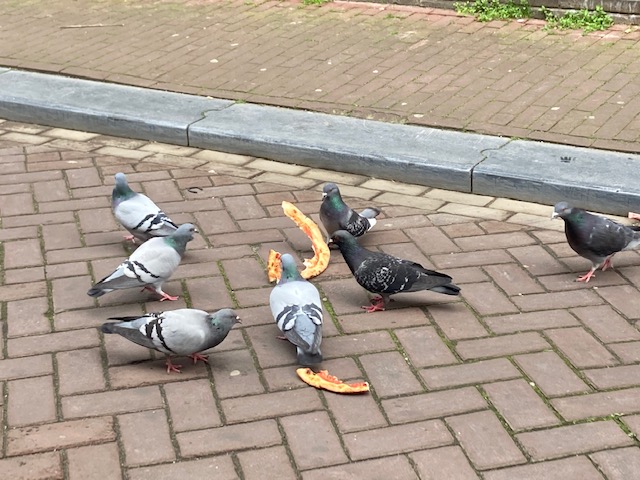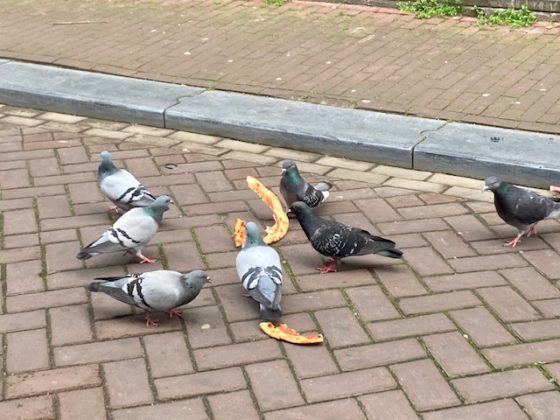Urban pigeons: pest or pal? Utrecht University investigates


Researchers at the University of Utrecht investigating the spread of urban pigeons are hoping to peck away at the birds’ poor reputation at the same time.
Relatively little is known about the urban pigeon, veterinary researcher Vivian Goerlich told RTL Nieuws. ‘We want to know the exact numbers and spread of these birds, and find out if they are really as much of a nuisance as people are claiming.’
Apart from annoyances like droppings and incessant cooing, some people think pigeons carry disease, but Goerlich said that this is no more likely than with other animals: ‘The chance that you’ll catch something from a pigeon is very small indeed. We tend to think of animals that live off waste as filthy but they really are not.’
There are an estimated 40,000 city pigeons in the Netherlands. Earlier research by the university showed that Amsterdam tops the list with 190 pigeons per square kilometre, followed by Rotterdam with 85. Utrecht only has 37 pigeons per square kilometre.
The current species evolved from the European rock pigeon which was brought to the Netherlands by the Romans, Rotterdam city ecologist André de Baerdemaeker told the broadcaster.
‘They took a liking to tall buildings and they stuck around. Both rats and pigeon follow people around because this means food.’
De Baerdemaeker is already a fan of the urban pigeon. ‘They are resilient and persistent no matter what people do to them. Few animals can survive in the harsh city environment. And the pigeon is beautiful as well, with its metal green sheen. But I admit some of the pigeons you see are not in very good shape, hobbling around on one foot or with wire stuck to their feathers,’ he said.
The Utrecht scientists hope the research will improve the image of the ‘flying rats’. ‘If they are pets, people like them; if they live in the streets, they think they’re dirty,’ Goerlich added. ‘I hope our work will lead to a sustainable way of people and pigeons living together.’
Thank you for donating to DutchNews.nl.
We could not provide the Dutch News service, and keep it free of charge, without the generous support of our readers. Your donations allow us to report on issues you tell us matter, and provide you with a summary of the most important Dutch news each day.
Make a donation